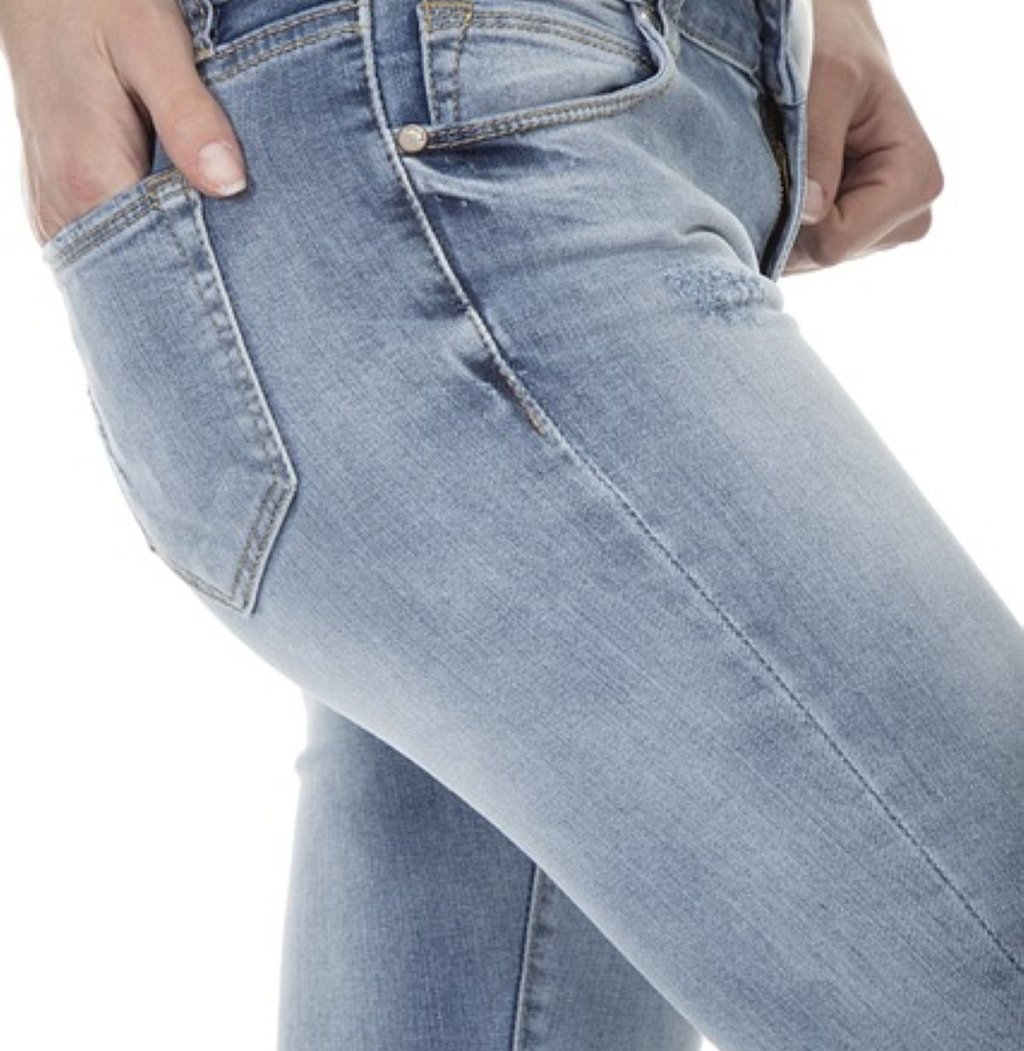Discover amazing discounts on sewing patterns-Fabric-Doll CLothes-eBooks-Yarn-& Other Handmades!
Sew A Pair Of Jeans That Fit
Discover how to sew jeans that truly fit and feel great. This article covers low-rise vs. high-rise styles, fabric tips, needle choices, and step-by-step instructions to help you create a comfortable, flattering pair of jeans at home.
DIY SEWING
Rhonda Harris
7/22/20253 min read
Sew A Pair Of Jeans That Fit
A Step-by-Step Guide To Sew Jeans That Fit And Feel Comfortable
Sewing your pair of jeans not only allows you to customize the style but also ensures a perfect fit and comfort. By following key steps and using the proper techniques, you can create jeans that are tailored to your body shape and provide a flattering, comfortable fit.
Choosing Your Style: Low-Rise vs. High-Rise Jeans
The Low-Rise Jeans
Low-rise jeans sit approximately one inch below the natural waist. They became especially popular in the late 1990s and early 2000s. Here’s why some sewists still love them:
Style & Fashion: Offers a youthful, casual silhouette
Freedom of Movement: Sits lower on the hips for a more relaxed fit
Visual Balance: Elongates the torso and flatters shorter waists
Personal Preference: Some find them more comfortable
The High-Rise Jeans
High-rise jeans sit at or slightly above the waist and have made a major comeback. They are favored for the following reasons:
Flattering Fit: Accentuates curves, defines the waist, and elongates the legs
Comfort & Coverage: Offers more support and minimizes slippage
Retro Appeal: Reflects popular vintage styles from the '70s and '80s
Versatility: Pairs well with tucked-in tops and layered looks
Choose a rise that complements your body proportions and feels best on you.
Materials You’ll Need
Stretch denim (9–12 oz for home sewing machines, with 2–3% elastane)
Optional fabrics: Stretch twill or gabardine
Polyester-cotton thread for seams and heavy-duty topstitching thread
Metal zipper (more durable than plastic)
Waistband interfacing (optional)
Tools: Sewing machine, scissors, pins, measuring tape, iron
Choosing the Right Needle
Use a 90/14 to 100/16 needle size
For thick denim or multiple layers, go up to 110/18
Use denim-specific needles made of hardened steel or titanium-coated
Replace your needle after 8 hours of sewing to avoid skipped stitches
Step-by-Step Sewing Instructions
Take Accurate Measurements
Measure your waist, hips, inseam, and rise. Accurate sizing is the foundation of a great fit.
Select Your Pattern & Fabric
Choose a style (low or high rise) and stretch denim that works with your machine. Polyester-spandex blends are ideal.
Cut Your Fabric
Follow the grainline and mark notches and darts precisely.
Sew the Inner Leg Seams
Join front and back pieces. Finish seams with a serger or zigzag stitch.
Create the Fly Front
Insert the metal zipper and attach the fly shield or facing.
Sew the Outer Leg Seams
Seam the sides from hem to crotch and finish the raw edges.
Attach the Waistband
Fold the waistband, stitch ends, add interfacing if desired, and topstitch in place.
Add Pockets and Belt Loops
Securely topstitch pockets and attach belt loops for function and style.
Hem the Jeans
Try them on, fold the hem twice, and stitch it down.
Make Final Adjustments
Take in or let out seams as needed
for your best fit.
Recommended Jeans Patterns
Closet Core Ginger Jeans – High-rise with customization options
Morgan Boyfriend Jeans – Relaxed mid-rise fit
Cashmerette Ames Jeans – Great for curvy bodies, multiple waistband options
Deer & Doe Safran Pants – Skinny, high-waisted with front fly
Megan Nielsen Dawn Jeans – Wide-leg, high/mid-rise options
Birkin Flares by Baste + Gather – Retro-inspired flared style
Named Jamie Jeans – Modern, slim fit
Vintage Pattern Options
Stretch & Sew 768 (1993) – Classic high-rise jeans
McCall’s 6610 – Petite-friendly boot-cut and flared
Butterick B5682 – Boot-cut and flared low-rise
Butterick 6800 – Low-rise, slim and boot-cut options
Butterick 6437 – High-rise with multiple leg styles
McCall’s 5142 – Combines low-rise and high-rise options
Sewing your own jeans is an empowering project that results in a wardrobe staple made just for you. From choosing the right rise to selecting denim that works with your machine, each step in this guide is designed to help you sew jeans that fit your body and lifestyle.
Happy Sewing!
Looking for the perfect topper to pair with your handmade jeans?
Check out my sewing patterns for flattering blazers and jackets designed to complement your silhouette.
✨ Subscribe in the footer below for more sewing tips, pattern guides, and new releases from The Needle Market!
© Rhonda Harris – For personal use only – www.theneedlemarket.com
Curated Sewing Goods Online – Based in the USA
Reach Out Contact Me
rhonda@theneedlemarket.com
Proudly powered by Hostinger
Start your own site with Hostinger



